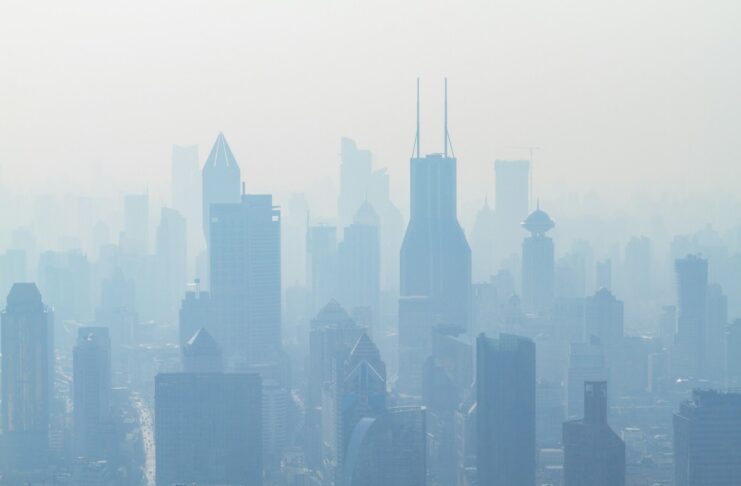Air-quality hazards once considered purely a public-health issue are now emerging as a serious workplace safety concern for UK employers. A new study finds that doubling concentrations of fine particulate matter (PM2.5) more than doubled the risk of a workplace safety liability accident.
The study, led by Dr Ning Zhang at Yonsei University in South Korea and published in the journal Energy Economics, analysed 5,873 incidents across China from 2000 to 2020. It found that the probability of a workplace accident increased by a factor of 2.6 when PM2.5 levels doubled. It also showed a 37 per cent increase in fatalities and a 51 per cent rise in total casualties.
Though the research was based on data from China, UK safety professionals say the findings have relevance for businesses here because the mechanisms — impaired visibility, reduced cognitive or physical performance and increased worker fatigue or irritation — can affect any workplace exposed to elevated air-pollution levels.
In the UK, ambient air pollution is identified as the largest environmental risk to public health. Government health guidance states that long-term exposure to polluted air can reduce life expectancy and indicates that even short-term exposure may contribute to hospital admissions for respiratory and cardiovascular conditions.
What the UK Evidence Says
Research by the charity British Safety Council, which campaigns on workplace air-quality issues, found that outdoor workers in London were regularly exposed to pollution above World Health Organization guideline levels. The charity noted that “very little has been done to address its impact on those who work outdoors, all day, every day”.
Government data show that in England alone air-pollution-related health costs (covering fine particulate matter and nitrogen dioxide) were estimated at £1.69 billion for the period 2017–25. Productivity losses linked to poor air quality have been assessed at around £2.7 billion.
While the figures focus on health rather than accidents, they indicate the scale of the problem and suggest that incident risk may be an under-recognised cost category for UK employers.
Implications for UK Workplaces
The mechanisms through which polluted air may increase accident risk include short-term impacts on concentration, decision-making, alertness and coordination. These are especially relevant in sectors where outdoor work, manual tasks and variable weather conditions combine — for example construction, utilities, transport and infrastructure.
Employers should therefore consider ambient pollution exposure in the same way as other environmental risk factors such as noise, temperature extremes and fatigue. Time-of-day scheduling, identifying high-pollution days and monitoring work-locations near busy roads or industrial emissions may all be relevant.
While the study did not focus on the UK, the policy lessons are transferable. Businesses that operate outdoor workforces or sites exposed to city/industrial emissions may face heightened incident risk when pollution levels rise, and hence should factor that into safety-management and wellbeing strategies.
Steps Employers Can Take
To reduce workplace accident risk linked to poor air quality, UK employers and wellbeing professionals can take action such as:
- Monitor local air-quality indicators (particularly PM2.5 and NO₂) and link with work scheduling or task-allocation decisions.
- Reschedule or relocate outdoor high-risk tasks during pollution alerts or episodes of poor air-quality forecasting.
- Ensure indoor workspaces exposed to outdoor pollutants have effective ventilation and, where appropriate, air-purification measures.
- Provide personal protective equipment (PPE) or filtered respirators for workers in high-exposure roles or settings.
- Train managers and staff to recognise how pollution-linked exposure may impair performance and increase error or accident risk.
- Embed air-quality exposure alongside traditional hazard risk assessments (such as slips/trips/falls, manual handling and fatigue) rather than treating it purely as a long-term health issue.
Duty of Care
As the British Safety Council says, employers have a duty of care for employee health, safety and welfare, and that can carry into ambient air-quality risks for outdoor or exposed workforces.
While much attention has been paid to the long-term health consequences of air pollution, the link to workplace safety events marks a fresh dimension of risk for UK employers. As ambient pollution remains a persistent challenge in urban and industrial areas, firms are advised to broaden their safety-and-wellbeing frameworks to account not just for health exposure but also for performance and incident risk.
By doing so — monitoring air-quality, adapting work scheduling, training staff and investing in protective controls — businesses can better protect employee wellbeing and reduce hidden costs around accidents, absenteeism and productivity loss.


